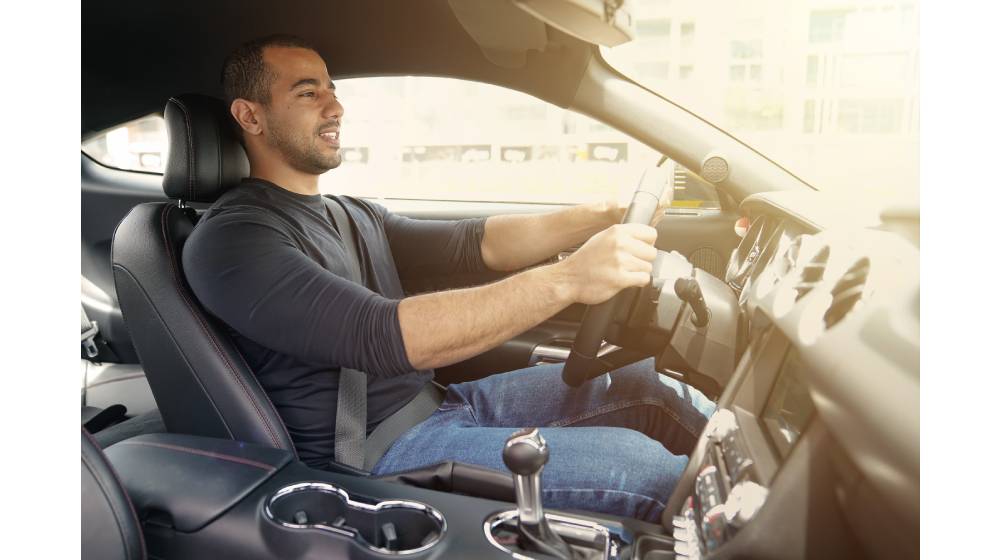
Calm Amidst Chaos: Bringing Zen to Your Daily Commute

Traffic congestion can be stressful. In a world where we’ve become used to high-speed information, streaming media and online services, any time lost in heavy traffic can send stress levels soaring. And, with roads likely to get extremely busy at peak times during the Holy Month of Ramadan, drivers will face even more stress on the roads.
It’s estimated that drivers in Dubai, the most congested city in the GCC, spend an average of 80 hours – or two full working weeks – stuck in traffic every year. Drivers in Mecca, Saudi Arabia, spend 77 hours in traffic jams annually – while drivers in Riyadh (53) and Abu Dhabi (50) struggle with the daily commute. It’s no wonder we feel glum at the prospect of heading into work.
While there’s not a lot you can do to avoid a traffic jam once you’re in it, you can try some of these tips to help make the dreaded daily commute a less tense, more positive experience.
Listen before you freak
Part of the reason traffic jams are so stressful is the time wasted. Listen to an audiobook or podcast to alleviate boredom and feel more productive. Some titles are so engaging, in fact, that you might just find yourself wishing for bad traffic so you’ll have time for “one more chapter.”
Pulling up a playlist of your favorite, feel-good songs can do equal wonders. Downbeat music has been proven to have a mellowing effect on drivers, with positive results recorded regardless of whether the driver’s switch to calming music was abrupt or gradual. Drivers who made a quick switch to downbeat music showed measurable physiological improvements, showing they calmed down much sooner and made fewer driving mistakes. So, turn up the volume the next time you feel your inner Hulk emerging.
“As we spend more and more time commuting, it’s crucial that our cars are being designed to accommodate the longer periods that we’re spending behind the wheel,” says Jamie Rae, marketing director, Ford Middle East. “Ford uses human-centric design to deliver vehicles that are inviting, accommodating and intuitive. For example, our SYNC™ connectivity and infotainment system offers nifty, hands-free functions like allowing drivers to listen to their texts, change music or climate settings and make phone calls easily with voice control. Our range of driver-assist technologies, like Adaptive Cruise Control, Pre-Collision Assist with Pedestrian Detection and Semi-Auto Active Park Assist, are also designed to take some of the stress off city driving.”
The power of “caromatherapy”
There are numerous studies on aromas and their impact on human emotion, behavior and performance. Researchers found that peppermint can enhance mental and athletic performance and cognitive functioning, while cinnamon may improve participants’ scores on tasks related to attentional processes and visual-motor response speed. A study from Kyoto University, Japan revealed that participants reported significantly lower hostility and depression scores and felt more relaxed after a walk through a pine forest.
It’s also why Ford has invested so much time and effort into making sure their vehicles not only look and feel, but also smell just right. “Out of our five senses, the sense of smell is the most powerful and most tied to our memories and emotions,” says Rae. “It’s why we have odour labs in the U.S., Europe and Asia Pacific. In Nanjing, China, where one of our labs is located, our super smellers conduct about 300 odour tests each year on materials and components that go into our vehicles. We want to make sure that we’re delivering the best experience, in all aspects, to drivers and passengers.”
It makes sense then, to think about incorporating some “caromatherapy” into our lives. There are plenty of car diffusers available or consider adding a few drops of essential oils to DIY felt air fresheners. A citrusy scent like orange or lemon can provide a boost of energy, while rosemary has been said to relieve stress and anxiety. Take care not to hang anything that might obstruct your field of vision though, and always make sure to test out essential oils at home first incase a scent makes you dizzy, overly relaxed which could affect driving focus, or causes an adverse reaction.
Ommmm and slow down
The mind is a powerful thing, and simply willing yourself to relax might be the most effective method of all. For this, breathing exercises can help you stay focused and feeling calm.
One useful practice is the one-to-one technique – breathing in and out for the same count with the same intensity. Deep, measured breaths facilitate full oxygen exchange, helping to slow down the heartbeat and stabilise blood pressure, as opposed to shallow breathing, which doesn’t send enough air to the lowest part of your lungs, causing you to feel anxious and short of breath.
Not all exercises are appropriate when behind the wheel. Avoid complicated breathing routines, always keep your eyes on the road and take care to ensure you’re not so busy counting breaths that your concentration is compromised.
“If our lifestyle means that we might be spending more time in our cars than we do on holiday, then we should make the most of it and try to create a more positive and enjoyable experience,” concluded Rae.































